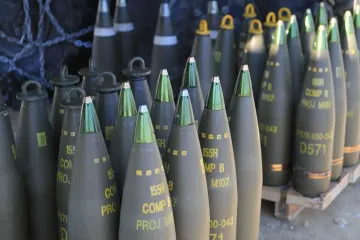Gunpowder and explosives production — Europe lacks resources and production capacity
news.online.ua
Fri, 21 Mar 2025 20:03:00 +0200

Europe faces problems in the production of gunpowder and explosivesOne of the key challenges for Europe, the agency notes, is its dependence on imports of raw materials from other countries.
In particular, China supplies nitric acid and nitrocellulose, which are needed to produce explosives and rocket fuel.A solution to this problem could be achieved by reorienting part of the civilian chemical industry to produce military products.
However, this requires significant investments in the modernization of production facilities.To attract companies, it is necessary to provide longterm guarantees of demand from the armies of EU countries, as well as to relax strict regulatory restrictions on industrial activity.The agency also emphasizes the need to encourage its own chemical industry to switch to military production.
In addition, the rules for the construction of defense plants and the transportation of finished products should be reviewed.According to Bloomberg, the EU plans to increase explosives production to more than 4.3 thousand metric tons, which would be an increase of 30.
In particular, the German concern Rheinmetall announced its intention to increase gunpowder production by 50 by 2028, although the companys head Armin Papperger believes that this figure should be reached 100.
Currently, there is only one large TNT production plant in operation in Europe, operated by the Polish company NitroChem.
Another production facility is planned to be built in France.
In early March 2025, European Commission President Ursula von der Leyen presented an ambitious plan for rearmament of Europe, the total cost of which is 800 billion euros.
For comparison, for the whole of 2024, EU countries spent 326 billion euros on defense.
The implementation of this plan assumes that each member state will increase its annual defense spending to 3.5 of GDP.However, Bloomberg Intelligence experts emphasize that it may take Europe more than a decade to achieve such goals.
Progress will be hampered by existing delays in the supply of military equipment and equipment, as well as a shortage of qualified specialists in the industry.










